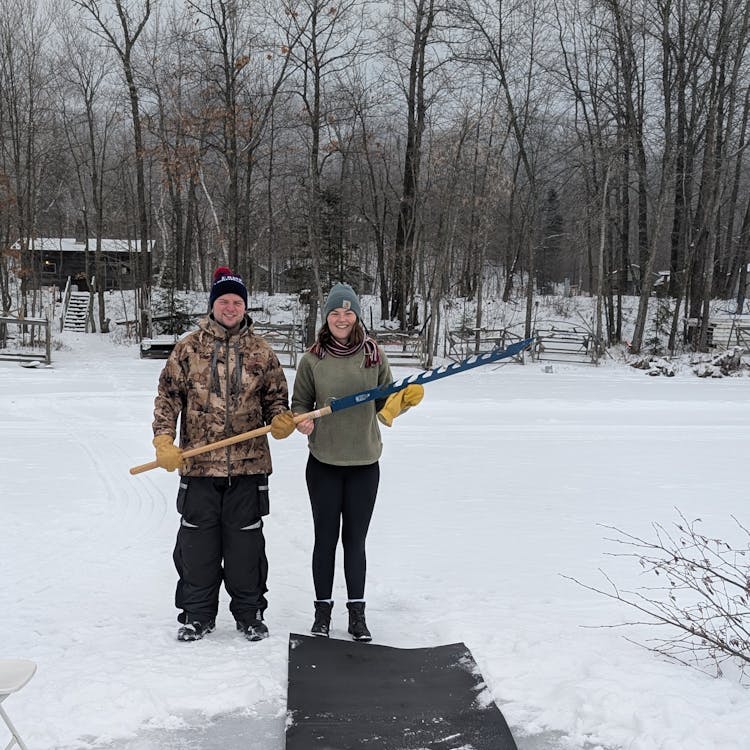Bringing Summer Alive- in the Midst of Winter

I have a friend who calls this time we now occupy (the week between Christmas and New Year’s) “Dead Week.” I think they got the phrase from an article celebrating this liminal space, in the author’s words, “When it’s the only time I don’t feel late to my own life.” This week, I found myself embracing it, as our children were home for the week. We played board games, lingered over long meals, and even cut a hole in the lake to cool off after a luke-warm sauna!
I realize not everyone, or every profession, has this experience. Retail, service and financial industry workers, to name a few, are as busy as ever this week I am sure. But for those of us who work 18 hour days in the summer, it’s pure heaven.
Whatever it was, it captured a bit of what I remember of my own young adulthood, the boredom, the uncertainty, the excitement of possibilities in the New Year, and bittersweet discarding of goals not met in the previous one. The “taking stock” of things.

What, you may be asking, does this have to do with summer camp? More than you might think. Sure, no week at Camp is “dead.” In fact, it’s crammed with activity, singing, swimming, playing and exploring. But that phrase, the only time I don’t feel late to my own life, resonates with me - as someone who has observed how children fill the time at Camp. I think it is, in fact, that time fills the children.
For many campers it’s the first time they’ve really been able to direct their activities, make choices, take risks, fail and recover. Away from their phones, devices and distractions, they engage with people, and the natural world around them, in a way that we never seem to have the time to do in the rest of the year, or at least give ourselves permission to do.
Lately, I have taken to saying that a Camp Mishawaka experience not only gives kids the time of their lives, it gives them time in their lives. Time to reflect, engage, take stock, and, as we so often hear, time to find their best selves. This is not an accidental feature of a Camp experience, but rather an intentional carving out of time and space for kids to inhabit childhood and all that comes with it.

Our children left today - returning to their lives, leaving us with two confused dogs and a mixture of pride and sadness. At 23 and 26 they are no longer children, I suppose, but as they left the “half-familiarity of being an adult in the spaces of childhood,” I felt nothing but gratitude for the Camp community that helped raise them. I also felt renewed excitement for the summer ahead and the opportunity to create, yet again, an experience for children that keeps on giving.
The “Dead Week” in-between the holidays offers a sort of grace - opportunities for kindness and forgiveness, as well as new possibilities. I believe Camp offers much the same as children navigate this in-between space- the time between adolescence and early adulthood. Eventually, childhood, like the year just about to pass, comes to an end. How we navigate these transitions relies on what we do in-between, with all its messiness. I can think of no better place than Camp Mishawaka to spend at least a portion of that time.